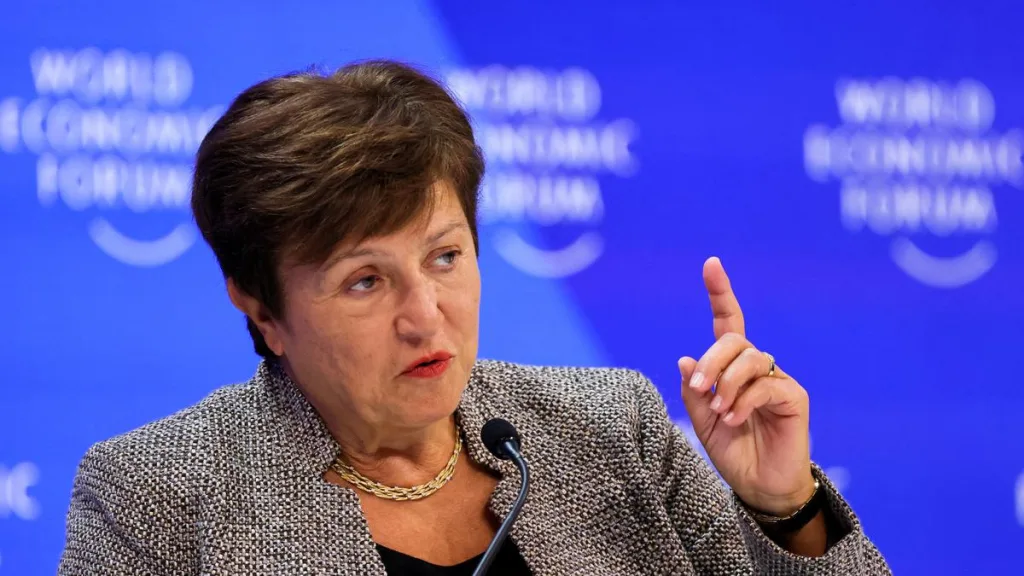Washington
The International Monetary Fund (IMF) said in the annual-quarter report that the global economy is expected to experience a slowdown in 2025 with an expectation of a growth rate by 2.8% for this year and 3% for next year.
However, a more pessimistic outlook has been predicted by the United Nations Conference on Trade and Development (UNCTAD), which forecasts global growth to slow down to 2.3% in 2025. This rate falls below the 2.5% threshold often associated with a global recessionary phase.
Main Factors Influencing Global Growth
Several factors are contributing to the expected slowdown in global growth. These include:
- Policy Uncertainty:
High policy uncertainty is driving lower growth expectations, with companies pausing investment decisions and reducing spending due to unclear outlooks on tariffs and regulations. - Inflation:
Global headline inflation is expected to decline, but at a slower pace than previously anticipated, with upward revisions in some countries.

Regional Growth Forecasts
The growth forecasts for different regions vary:
- United States: The IMF forecasts US growth at 2.7% in 2025, driven by robust consumer spending and capital investment. However, another report revised the forecast down to 1.8% due to tariffs and policy uncertainty.
- Euro Area: The euro area is expected to grow by 1.0%, with Germany teetering near recession and France and Italy showing limited recovery.
- China: China’s growth is expected to decelerate to 4% or 4.5% in 2025, facing property market fragility, aging demographics, and renewed US tariffs.
- India: India continues to expand rapidly, with growth forecasted at around 6% to 7%.

Policy Recommendations
To boost growth and rebuild fiscal buffers, countries should consider the following policy recommendations:
- Restore Trade Policy Stability: Countries should work towards forging new trade agreements and reducing tariffs.
- Fiscal Consolidation: Governments should implement gradual and credible consolidation plans to reduce debt and increase fiscal space.
- Invest in Digital Infrastructure: Investing in digital infrastructure and training can help countries benefit from new technologies like artificial intelligence.
The global economy is facing a challenging period, and policymakers must take proactive steps to mitigate the impact of the slowdown and promote sustainable growth.
——————————————–
